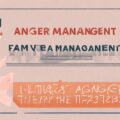Understanding Frustration: A Common Human Experience
Feeling frustrated is a universal human experience that we all encounter at various points in our lives. Whether it’s due to unfulfilled expectations, obstacles in our path, or a sense of powerlessness, frustration can be an overwhelming emotion. However, it’s essential to remember that frustration, like all emotions, serves a purpose and can be a catalyst for personal growth and positive change when approached with compassion and mindfulness.
The Nature of Frustration: Why We Feel It
Frustration often arises when we face barriers to our goals or when our efforts don’t yield the desired results. Some common triggers include:
- Unmet expectations
- Lack of control over situations
- Feeling misunderstood or unheard
- Repeated failures or setbacks
- Conflicting priorities or values
Understanding the root causes of our frustration can be the first step towards managing it effectively and transforming it into a force for positive change.
Compassionate Approaches to Dealing with Frustration
When frustration bubbles up, it’s tempting to react impulsively or harshly judge ourselves. However, a compassionate approach can lead to better outcomes and emotional well-being. Here are some strategies to consider:
- Practice self-awareness: Recognize the signs of frustration in your body and mind.
- Pause and breathe: Take a moment to step back and breathe deeply before responding.
- Validate your feelings: Acknowledge that it’s okay to feel frustrated without judgment.
- Reframe the situation: Look for alternative perspectives or potential lessons in the experience.
- Practice self-compassion: Treat yourself with the same kindness you would offer a friend.
By approaching frustration with compassion, we can transform it from a negative experience into an opportunity for growth and self-discovery.
Turning Frustration into Motivation
While frustration can feel disheartening, it can also be a powerful motivator when channeled effectively. Here’s how you can harness the energy of frustration for positive outcomes:
- Use frustration as a signal to reassess your goals and strategies
- Break down large tasks into smaller, manageable steps
- Celebrate small victories along the way
- Seek support and collaboration from others
- Use frustration as fuel to overcome obstacles and prove your resilience
By reframing frustration as a catalyst for action, you can transform it from a roadblock into a stepping stone towards success and personal growth.
Cultivating Resilience in the Face of Frustration
Building resilience is key to managing frustration effectively over the long term. Here are some practices that can help strengthen your emotional resilience:
- Mindfulness meditation: Regular practice can help you observe your thoughts and emotions without getting caught up in them.
- Gratitude journaling: Focusing on the positives in your life can provide perspective during frustrating times.
- Physical exercise: Regular activity can help release tension and boost mood-enhancing endorphins.
- Connecting with others: Sharing your experiences with trusted friends or family can provide support and new perspectives.
- Learning from setbacks: View challenges as opportunities to grow and develop new skills.
By incorporating these practices into your daily life, you can build a strong foundation of emotional resilience that will serve you well when facing frustrations.
FAQ: Understanding and Managing Frustration
Q1: Is it normal to feel frustrated frequently?
A1: Yes, it’s normal to experience frustration regularly. Frustration is a common emotion that arises when we face obstacles or unmet expectations. However, if frustration is significantly impacting your daily life or relationships, it may be helpful to speak with a mental health professional.
Q2: How can I tell if I’m dealing with frustration or anger?
A2: While frustration and anger are related, they differ in intensity. Frustration is typically a milder emotion characterized by feelings of disappointment or being stuck. Anger is more intense and may involve a stronger urge to act out. Frustration can lead to anger if not addressed.
Q3: Can frustration ever be beneficial?
A3: Yes, frustration can be beneficial when channeled constructively. It can serve as a motivator for change, signal the need to reassess goals or strategies, and push us out of our comfort zones to find creative solutions.
Q4: How can I help a friend or family member who’s feeling frustrated?
A4: To support someone feeling frustrated, listen without judgment, validate their feelings, and offer empathy. Avoid trying to “fix” the problem immediately. Instead, ask how you can help and offer your support in finding solutions if they’re open to it.
Q5: Are there any quick techniques to manage sudden feelings of frustration?
A5: Yes, some quick techniques include deep breathing exercises, counting to ten, taking a short walk, or using a stress ball. The key is to create a brief pause that allows you to reset and approach the situation with a clearer mind.
Embracing Frustration as a Path to Growth
As we navigate life’s challenges, it’s important to remember that frustration is not the enemy. Instead, it’s a natural part of the human experience that, when approached with compassion and mindfulness, can lead to profound personal growth and resilience. By understanding the nature of frustration, practicing self-compassion, and developing strategies to channel it constructively, we can transform this challenging emotion into a catalyst for positive change in our lives.
Remember, the next time you feel frustrated, pause, take a deep breath, and approach the situation with kindness towards yourself. You might just find that what once seemed like an insurmountable obstacle becomes an opportunity for learning, growth, and ultimately, a stepping stone to becoming a more resilient and compassionate version of yourself.









